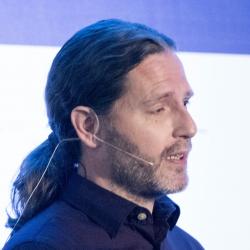
Trond Hjorteland
Scienta
Modularity in open systems
API Days Paris, 2021, 8 December, 4:50 pm CET.
Biography
Trond is an IT architect and aspiring sociotechnical systems designer from the consulting firm Scienta.no and has many years’ experience working with large, complex, and business critical systems, primarily as a developer and architect on middleware and backend applications. His main interests are service-orientation, domain-driven design, event driven architectures, and open sociotechnical systems, working in industries like telecom, media, TV, and public sector. His mantra: great products emerge from collaborative sense-making and design.
Talk description
APIs are the ultimate tool for building modular software systems. But when building modular systems at scale there are some serious caveats. Modularity is a common tool we use to deal with complexity, grouping things into neat boxes that let us focus on a small part of a larger system in isolation. We have probably done it this way for aeons. This changed with the introduction of a new way of looking at reality, a new framing frequently referred to as systems thinking. We learnt that any non-trivial system is defined by the interconnectedness of its parts and that the parts themselves are described by its role in the whole. It no longer made sense to view the parts as independent entities. Another realisation made was that some systems are closed and some are open to its environment, which change the playing field even more. Not only are parts dependant on the whole, the whole is also in a intimate relationship with its surroundings.This new framing opens up a new door to a whole new world, where unpredictability is abound and we no longer can safely use mechanistic tools like analysis and reductionism, expecting full determinism. In this talk we will explore the impact this perspective has on us as developers of IT system, with our desire to create stable, predictable and robust solutions for the business and their users. How is that at all possible in the VUCA world of open systems where everything is connected to everything and where it all is in constant motion? Herding cats, anyone?